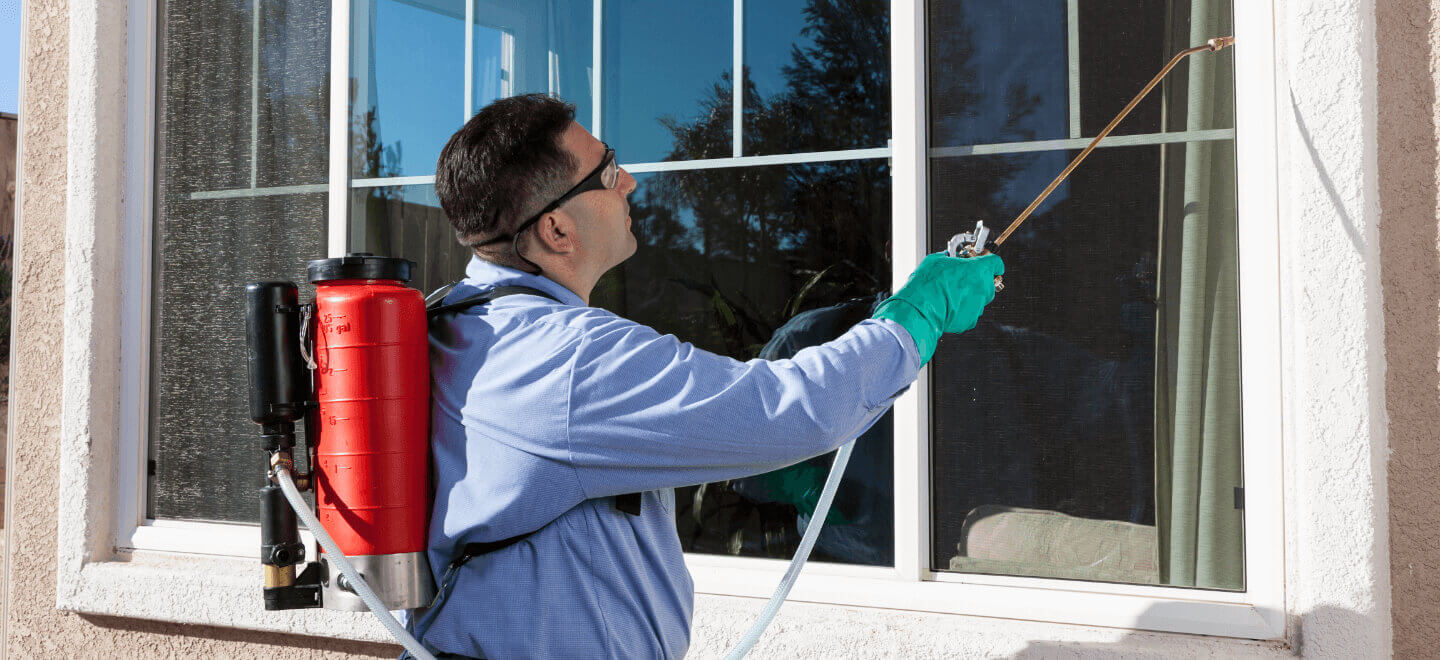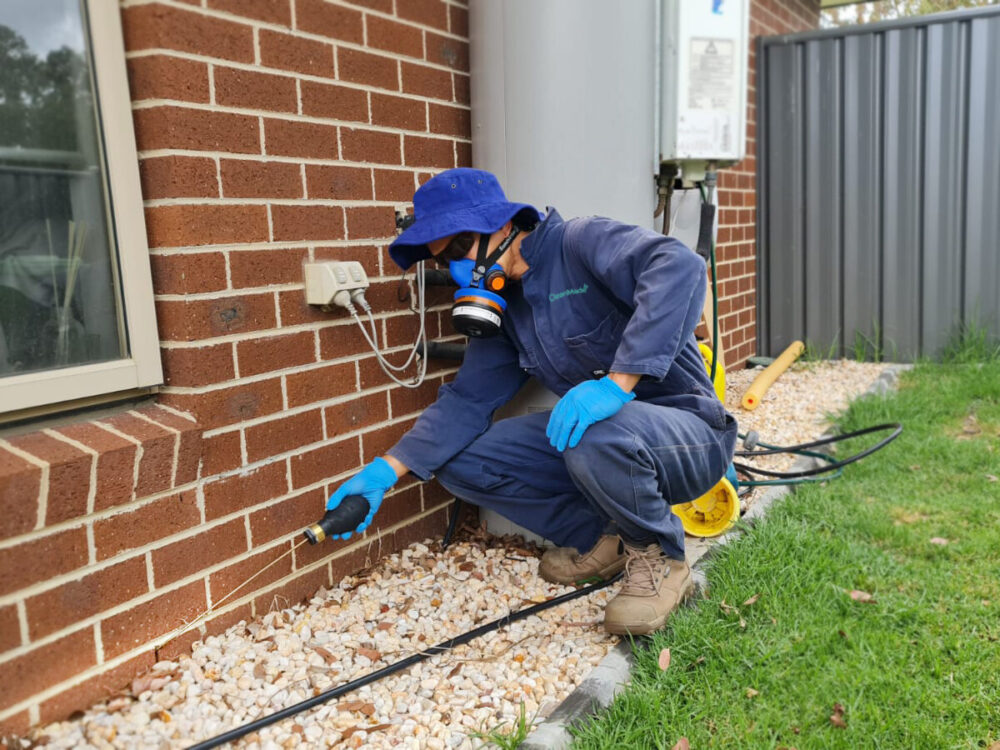Orem Pest Control Providers: Tailored Solutions for Every Problem
Orem Pest Control Providers: Tailored Solutions for Every Problem
Blog Article
Finding the Different Kinds Of Parasite Control Techniques and Their Applications
Insect control is a critical aspect of preserving a risk-free and healthy and balanced atmosphere, whether it be in property, industrial, or agricultural settings. From chemical approaches that target details bugs to biological approaches that harness all-natural killers, the world of pest control is diverse and substantial.
Chemical Parasite Control Strategies
Chemical insect control techniques are widely utilized in farming and insect administration to properly eliminate or regulate pest infestations. These approaches include making use of chemical compounds, such as herbicides, insecticides, and pesticides, to decrease or eliminate bug populaces that pose a risk to plants, livestock, or human health. Pesticides, as an example, target particular insects like weeds, rats, or pests, interrupting their life process or causing direct damage upon call. Herbicides are specifically made to manage undesirable plant life that takes on crops for resources and nutrients. Insecticides, on the various other hand, are used to deal with insect bugs that can damage plants and send diseases.
While chemical pest control strategies can be highly efficient in handling insect populaces, they also raise concerns concerning potential environmental and health dangers. It is necessary to adhere to safety and security standards, use incorporated pest monitoring methods, and think about alternative approaches to minimize the negative effects of chemical parasite control techniques.
Organic Parasite Control Methods
 Biological parasite control techniques utilize living microorganisms to take care of and decrease insect populaces in a sustainable and ecologically pleasant fashion. This approach includes introducing all-natural predators, parasites, or virus to regulate parasites without the requirement for artificial chemicals. One typical approach is the release of ladybugs to battle aphids in yards, as ladybugs are all-natural predators of these devastating insects. One more instance is using Bacillus thuringiensis (Bt), a germs that produces toxic substances deadly to particular insect larvae, to control caterpillars and insects.
Biological parasite control techniques utilize living microorganisms to take care of and decrease insect populaces in a sustainable and ecologically pleasant fashion. This approach includes introducing all-natural predators, parasites, or virus to regulate parasites without the requirement for artificial chemicals. One typical approach is the release of ladybugs to battle aphids in yards, as ladybugs are all-natural predators of these devastating insects. One more instance is using Bacillus thuringiensis (Bt), a germs that produces toxic substances deadly to particular insect larvae, to control caterpillars and insects. 
Biological parasite control approaches offer a number of advantages over chemical techniques. Generally, organic pest control techniques offer a all-natural and effective alternative to traditional chemical treatments, advertising a balanced ecological community and much healthier settings.
Physical Pest Control Approaches
Making use of physical methods to regulate bugs entails the usage of non-chemical or mechanical methods to manage and mitigate insect problems effectively. These strategies rely on physical obstacles, traps, and various other techniques to discourage and eliminate pests without using damaging chemicals. One usual physical pest control technique is the setup of nets, fences, or displays to block insects from getting in details locations. This technique is specifically efficient in staying out insects and little animals from structures or gardens.
One more physical strategy is the usage of traps, such as snap traps for rats or scent traps for pests. These catches purpose to record insects without posing any type of threat to people or the environment. Furthermore, physical control methods can include strategies like handpicking pests off plants, making use of vacuum tools to eliminate pests, or employing heat treatments to remove bed insects and various other bugs in ravaged locations.
Integrated Insect Administration Strategies
Carrying out a holistic technique to pest monitoring, Integrated Pest Monitoring (IPM) strategies aim to incorporate various efficient techniques to prevent and control bug problems while decreasing ecological impact and making sure lasting insect control techniques. IPM includes the integration of several control techniques such as organic control, social methods, mechanical control, and the cautious use of chemicals.

Moreover, IPM emphasizes the value of tracking and analyzing click this site pest populaces to establish one of the most proper control strategies. By applying IPM approaches, bug control efforts become more targeted and reliable, decreasing the threats connected with excessive pesticide use and promoting long-term bug administration solutions.
All-natural and Organic Pest Control Options

One popular natural insect control method is neem oil, acquired from the seeds of the neem tree, which works as a repellent and disrupts the growth and growth of pests. Diatomaceous earth, an all-natural silica-based powder, is one more effective link natural pest control choice that functions by dehydrating bugs upon call. By incorporating natural and all-natural bug control alternatives into insect management methods, individuals can properly manage insects while minimizing damage to the environment and advertising sustainable techniques.
Conclusion
In conclusion, different parasite control strategies such as chemical, organic, physical, integrated insect management, and natural options are readily available for efficiently taking care of insect invasions. Each technique has its own advantages and applications depending on the type of pest and the setting. By understanding the various kinds of pest control strategies and their applications, individuals can make informed decisions on the most proper strategy to manage insects and shield their residential property.
Chemical bug control methods are extensively utilized in farming and pest monitoring to effectively eradicate or regulate pest problems - Orem Pest Control. All-natural insect control techniques include utilizing biological control representatives, such as predators or bloodsuckers, to handle insect populations. By including natural and organic insect control alternatives right into pest monitoring methods, individuals visit this website can properly manage insects while minimizing injury to the environment and promoting lasting techniques
In verdict, various bug control techniques such as chemical, organic, physical, integrated insect management, and natural alternatives are available for successfully taking care of insect infestations. By recognizing the different kinds of bug control strategies and their applications, individuals can make informed choices on the most ideal strategy to manage insects and protect their property.
Report this page